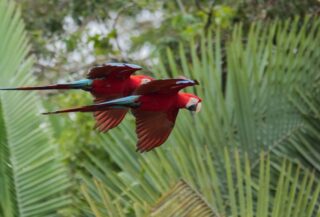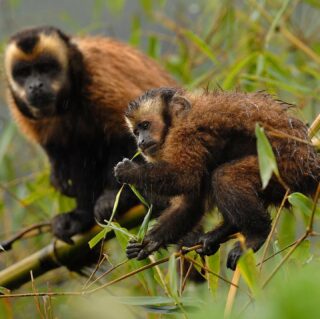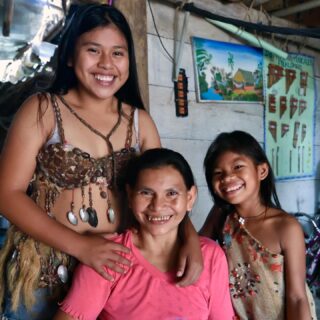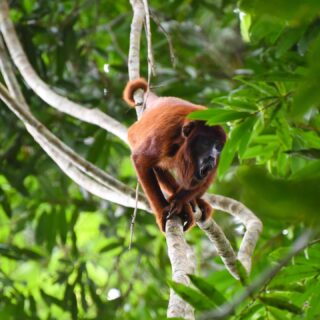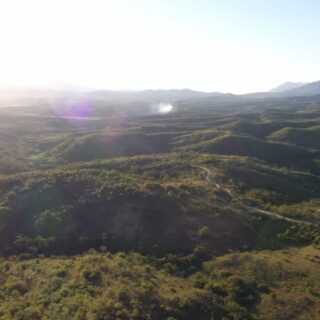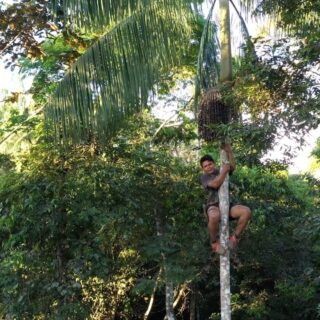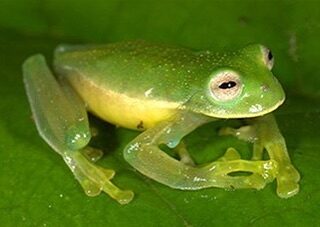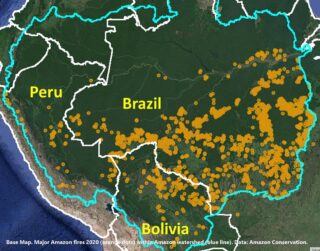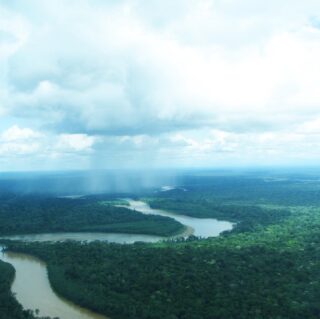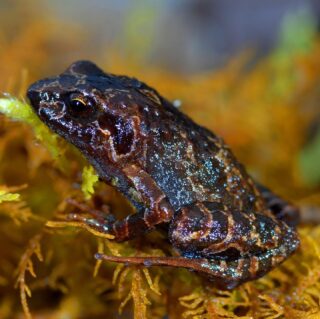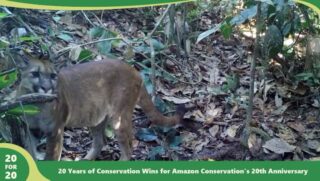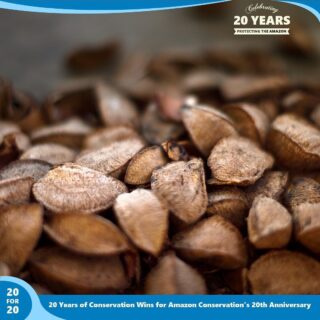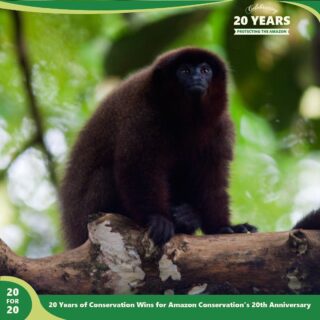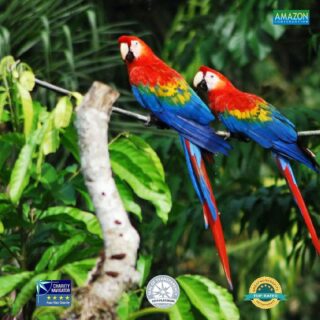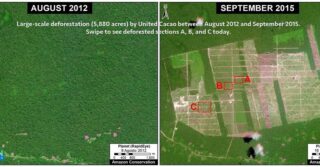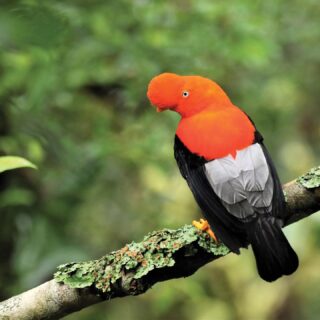Growing Partnership with the Erol Foundation Seeks to Strengthen the Forest-Based Economy
March 7, 2025
From rich Brazil nuts and antioxidant-packed açaí berries to the chocolate in your favorite dessert, many of the world’s most beloved flavors have one thing in common: they are sourced from one of the most biodiverse ecosystems on the planet. Through our partnership with the Erol Foundation, we have been working with local producers in the southwest Amazon to promote sustainability through the forest-based economy that relies on these Amazonian products, while also strengthening local livelihoods and conserving forest resources.
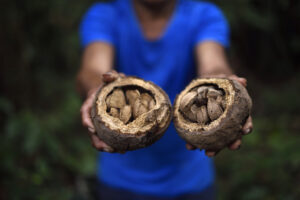 Since 2022, Amazon Conservation has partnered with the Erol Foundation to expand efforts to strengthen the forest-based economy in the Bolivian and Peruvian Amazon by improving non-timber forest product value chains (the interconnected production and processing activities involved in developing a product) and integrating climate-smart practices into community- and municipal-level production activities. From sustainable material sourcing to final product delivery, we aim to enhance key elements of the value chain, including production, marketing, and distribution, marking a critical step toward improving the livelihoods of forest producers.
Since 2022, Amazon Conservation has partnered with the Erol Foundation to expand efforts to strengthen the forest-based economy in the Bolivian and Peruvian Amazon by improving non-timber forest product value chains (the interconnected production and processing activities involved in developing a product) and integrating climate-smart practices into community- and municipal-level production activities. From sustainable material sourcing to final product delivery, we aim to enhance key elements of the value chain, including production, marketing, and distribution, marking a critical step toward improving the livelihoods of forest producers.
In February, we reported the latest results of our partnership with the Erol Foundation, including establishing new business contracts, improving quality control standards, obtaining new organic certifications for producers, and launching a $2.8 million project entitled “Ecosystem Conservation and Sustainable Socio-Environmental Management of Biodiversity in Pando, the Bolivian Amazon.”
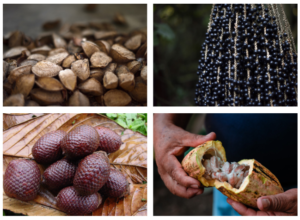
In order to optimize production processes, we first needed to better understand the existing gaps in the value chains of four major non-timber forest products: Brazil nuts, açaí berries, aguaje, and cacao. Conservación Amazónica–ACCA and Conservación Amazónica–ACEAA evaluated local communities, associations, and businesses and found that capacity-building, training, communication, climate adaptation, and market access were key areas in need of improvement to enhance local production quality and efficiency.
Since communications platforms play a crucial role in linking local producers with buyers and larger national, regional, and international markets; facilitating knowledge exchange; growing demand for forest products; and ensuring standardization and coordination across the value chain, such platforms have been one key component of our efforts to strengthen the forest-based economy with the Erol Foundation’s support. To bolster these efforts, Conservación Amazónica–ACCA and Conservación Amazónica–ACEAA have been providing technical support for e-commerce and digital platforms, increasing visibility and market access for local producers, and strengthening the Inter-institutional Platform for Amazonian Fruits (PICFA), which enables local actors (producers, intermediaries, and buyers) to obtain timely information to inform their decision-making in negotiating and selling certain forest products. An initial evaluation identified that skills in sales management, negotiations, and in-house quality control were essential to increase the competitiveness of the beneficiary producers in securing better prices for their products by empowering them to better compete with larger producers. Thanks to the combination of these trainings and greater communication among producers and producer associations, 10 new business contracts were established between local companies, government entities, and producer associations, representing a value of nearly $1 million in contracts.
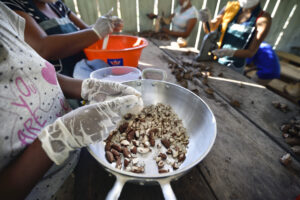
Following this initial assessment and improvement in the value chain, our work supported by the Erol Foundation focused on improving the production standards and achieving organic certification standards to expand access to markets for non-timber forest products. Organic certification is a mechanism to incentivize sustainable wild production of raw materials in order to help ensure safe harvesting, production, and processing practices that do not depleting natural forest resources. Organic certification can also enable local producers to sell their organic products across global markets at much higher prices than products without an organic certification. As of January 2025, Conservación Amazónica–ACCA has helped 146 Brazil nut producers in Peru’s Madre de Dios region improve quality control standards and obtain new organic certifications.
To improve production management, Conservación Amazónica–ACEAA launched a $2.8 million initiative in July 2024 in Pando, Bolivia to promote biodiversity conservation and sustainable socio-environmental management. The project focuses on diversifying the non-timber forest product value chain while establishing regenerative agricultural models that help counter the pressure and impacts of deforestation due to mining, cattle ranching, and palm cultivation. Building on past pilot programs, the initiative strengthens forest governance, improves market access, and enhances sustainability utilizing three key tools and platforms: Inter-institutional Platform for Amazonian Fruits (PICFA), the Amazonian Fruits and Climate Change Observatory, and our Monitoring of the Andes Amazon Program (MAAP). Together, these efforts create a foundation for sustainable forest resource management and long-term economic growth in Pando.
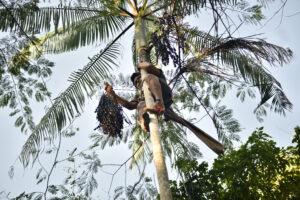
In addition to improving production standards, we have also been working with local producers to address the growing impacts of climate change, which have caused lower rainfall and a drastic decline in yields of key forest products that continues causing economic loss for thousands of families and communities. Digital platforms such as the Amazonian Fruits and Climate Change Observatory, created with Conservation Amazonica–ACEAA’s support, share timely information on the productive potential and impacts on supply due to climate change and provide a platform for producers to share innovative and effective climate-adaptive agricultural practices that worked for them with other local producers. Furthermore, we have provided training in how to diversify the forest-based economy with other sustainable forest-based products, such as aguaje, to provide producers with multiple sources of income for more consistent harvests and alternative options should one product be impacted by external factors.
We are incredibly grateful for the support received from the Erol Foundation that has helped us expand and strengthen our Forest-Based Economy approach over the past 3+ years, along with our partners at the World Wildlife Fund, PromPeru, the Inter-American Development Bank (IDB), the Embassy of Sweden, and the European Union. The Amazon Conservation Alliance is proud to empower local communities with the tools and resources needed to build resilient livelihoods and protect the very forests they call home. We remain committed to our efforts in strengthening the forest-based economy, and look forward to continuing to expand this long-term impact thanks to the ongoing support of our partners.

